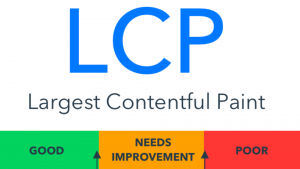The start of international expansion is an incredible milestone for any business, and gearing up to take your enterprise around the globe will be probably the most thrilling moments of your livelihood. But simply since your company is thriving in your home does not mean it’ll be a success abroad. To accomplish that, you will need to pay attention to your international search engine optimization strategy. Achieving online international visibility may be challenging, especially whenever you factor in differences in culture, language, and search customs. It isn’t a cookie cutter approach where one size fits all across all regions.
Nevertheless, you will be more than ready to tackle the challenges of international Search engine optimization once you have followed these six should know tips, and should soon see your company soaring in search rankings across the world.
Pick a domain strategy
Search engines considers A .com TLD as cream of the crop with regards to domains and the authority. However this could be far too generic to attract international customers. Instead, your domain should target your country of choice and show users around the globe your site is catered specifically to them. A ccTLD is frequently popular since the country code instantly shows customers and search engines what the target country is.
However, when you’ve multiple versions of the web site over a series of ccTLD, the search engines will treat them as separate entities, which means that each domain will have to build back-links and authority up. A subdirectory maintains your pre existing SEO attempts as you’re just adding a localized folder to your existing domain name. Nevertheless, this risks causing cannibalization if different international squeeze pages are optimized to the very same keywords; like a US subfolder and a subfolder where the terminology is largely the same.
A subdomain is usually the default for Content management system tools, but users are less inclined to associate your site with their country as the state code comes first as opposed to last, meaning click through rates could take a hit.
All domain plans have cons and pros, so it is important to ascertain how each option will work on your business specifically. Matthew Finn, one of the search engine optimization pros at Go Up, highlights many points which can determine your international domain strategy decision. Budget obviously comes into play, ccTLDs can be particularly costly, and your branding might be a factor too. As they describe: In case your business has a logo that shows your domain name, or brand guidelines which stipulate speaking about your company as YourBrand.com, then a ccTLD would not work.
You also need to consider the possible limitations of CMS and domain name. For example, subdirectories and subdomains only work with an existing generic top level domain such as.com. Look at the domain structures of the competitors on your target nations to see what google loves. You may opt to utilize a combination of all 3 strategies to target unique markets.
Conduct localized keyword study
You will seem like you get a fantastic understanding of your current audience’s search habits, but these keywords might not be popular throughout the board. Conducting keyword study can helps you judge the online questions likely to serve you best in every nation. This isn’t so difficult when you are targeting other English speakers, although you still have to take jargon and regional variations taken into account. As an example, if you are a shoe business going after an Australian audience, you’d be better off targeting thong, rather than flop. This is related to voice search.
Obviously, things become more complex when dealing with languages that are entirely different. You might not comprehend the words themselves and also need to consider how context can impact intent. Webcertain results showed significant differences in between the research patterns of US and users. Roughly 60 percent of US searches about chairs related to style and form, however only 20% of Chinese searches had the exact same intent. In fact, 5% more Chinese searches had been action based, what exactly to do the chair. Culture can greatly influence the way people invent their online questions and you can’t dismiss this factor when picking location certain keywords.
Do not assume one language means one civilization
One size doesn’t fit all with regards to international expansion, particularly considering the variety of languages. There are various differences between standard Portuguese and Brazilian Portuguese; knowing that there are so many variants of Spanish languages across North America, South America and the Caribbean; let alone the numerous regional dialects in Spain itself. You might think that translating your site into a standard language will allow you to connect with relevant markets; but you risk alienating millions of prospective clients if you do not tailor your content to each target location. Remember colloquialisms or idioms which make sense in one location,will not in another; even if the same language is spoken.
If an Ireland based furniture business employed the term media; any English speaker outside the country will accomplish that and practices are accepted in one called to a kitchen cupboard. Similarly a few words and practices are accepted in one location, but are offensive in another. Although Arabic is the official language of both Morocco and Saudi Arabia; references to alcohol should only be permissible when targeting the prior as drinking is prohibited in Saudi Arabia. Additionally you will vary from country to country no matter language monies, along with other details; which might vary from country to country regardless of language.
French speaking Canadians will be puzzled to see costs in euros as opposed to Canadian dollars. Errors like this could deter damage and users historical and cultural factors making every place unique. Consequently, it’d be a mistake to concentrate historical and cultural factors making every place unique distinctive historical and cultural factors making every place unique. Consulting people familiar with the nuances of every acceptable for all the prospective clients living there.
Think beyond Google
Google is the holy grail with regards to all search engine optimization efforts; but there can be other search engines to market during international expansion. The vast most users in China and Russia, two of the biggest markets in the world, direct the most of their on-line queries to completely different platforms, so focusing on Google alone might be detrimental to your visibility and profits. In Russia, the leading internet search engine is Yandex that holds 56% of the market share. This success has been put down to a search. Engine understanding of languages. In the mean time, Google has been blocked under the nation’s Internet censorship policy.
Chinese users conduct their online excavations in Baidu; which held between 60-77% of the internet search engine market share in China. You cannot afford to dismiss alternative search engines when targeting markets such as these. It is also important to recognize each one has its own particular algorithms. There’ll be some similarities, by way of instance, Google, Yandex and Baidu all benefit quality content. But you need to be mindful of the differences. Indexing can be quite slow for Baidu; Yandex which suggests it may take more time to see the advantages of your efforts; so long term outcomes should be the priority.
Paid results are given greater precedence in Baidu than search. In the mean time, Yandex values meta key words, a metric which Google has removed it from its ranking algorithm a while ago.
Implement tags
Hreflang tags signpost that languages and places your pages have been aimed; helping Google to know that version of a page is the most suitable for its users. For example, if somebody in Paris typed into a search term applicable to your product page; a hreflang label signals to Google the French version of the page must appear in search results. To target customers as correctly as possible, you need to consist of hreflang tags for speech and region. For example, The en tag shows Google that your page is right for many English speakers; but you might also add tags to highlight the geographical locations you are targeting; en-ca for English speakers in Canada and en-us for English speakers in the US.
It is critical you use the right codes; for example, the United Kingdom is gb as opposed to uk’and a hreflang label generator such as this one advocated by Moz can help minimize mistakes.
Start localized link building
Just as with any domestic SEO strategy; links are essential in building the authority of your website within a target locale. To elevate your brand in local search, it’s vital to source links from local platforms within your industry. The more hyperlocal, the higher ranking; for instance, if you’re opening a replacement hotel in Berlin, links from travel platforms within the Berlin are going to be more valuable than those in Munich or Hamburg.
Seek out journalistic opportunities and function a source of experience; guest post on influential sites within a neighbourhood , and use social channels to create connections with local influencers and businesses. It’s also recommended that you simply use a translator or someone familiar with the language and customs of a target region to handle the outreach. The more you extend your brand during a target market, the more you’ll be rewarded with high authority backlinks.
To Read more about SEO CLICK HERE



